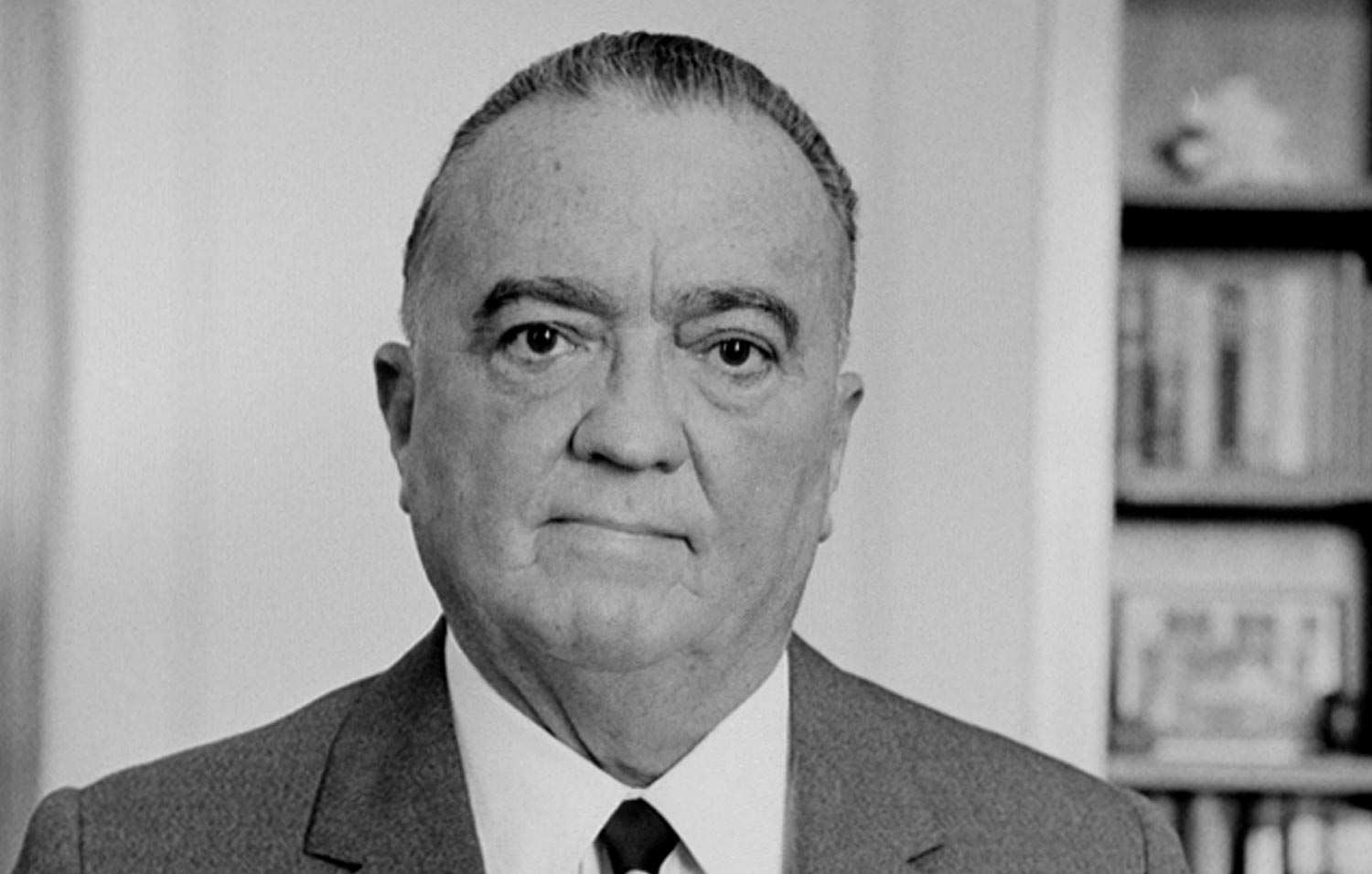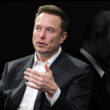There is a widespread sentiment in the non- MAGA universe that this particular moment is the worst that America has ever experienced. History tells us otherwise.
In Yuval Noah Harari’s book Nexus: A Brief History of Information Networks from the Stone Age to AI, he asserts, “History isn’t the study of the past; it is the study of change.”
One period of change that is particularly relevant to the current moment is the nineteen fifties. That is the version of America that Donald Trump wants to restore “again,” the time when he came of age. It was when Elvis sported the ducktail haircut that the president emulates, when Trump’s mentor Roy Cohn was the lead counsel for Senator Joseph McCarthy, and when the Cleveland baseball team that won the American League pennant in 1954 was called The Indians.
One of the most compelling examples of the struggle for positive change in the face of the suffocating pressure for conformity in those years can be found in the new book Evergreen Review: Dispatches from the Literary Underground: Covers and Essays, 1957-1973 by Pat Thomas (Fantagraphics Books).
When The Evergreen Review began publishing, abortion and homosexuality were criminalized in virtually the whole country, and J. Edgar Hoover’s FBI harassed anyone that he deemed soft on communism, including labor leaders and schoolteachers. The Hollywood blacklist barred hundreds of actors, directors and screenwriters from work because of their political beliefs.
The American government didn’t recognize the government of more than half a billion people in an entity that American policymakers disparagingly referred to as “Red China,” while maintaining the fantasy that the real government of China was in Taiwan. The CIA, with the blessing of President Eisenhower, helped overthrow democratically elected governments in several countries around the world, including those in Guatemala and Iran. Time magazine, the most influential news publication of the day, was run by Henry Luce, an avid cold warrior and early patron of Richard Nixon.
There were virtually no Blacks or women in positions of power on Wall Street, in government, or in the mass media. Overwhelmingly white and male newsrooms tip-toed around the edges of racial and gender issues on the rare occasions when they were addressed at all. “Amos and Andy,” a comedy series built around racist caricatures of Blacks, was broadcast weekly on the CBS television network during the entirety of Eisenhower’s presidency.
The Democratic party was as ineffective then as it is today. The party’s Congressional leadership consisted of two “moderate” Texans, House Speaker Sam Rayburn and Senate Majority Lyndon Johnson. The role that Johnson played in the fifties (very different from the one he would play when he became president in the sixties) was consistent with the segregationist values of the “southern caucus.”
After the Montgomery bus boycott led by Dr. Martin Luther King Jr., and the Brown v. Board of Education decision that legally banned racial segregation in public schools, there was enough political pressure to force the Congress to pass what was called a “Civil Rights Bill” in 1957. However, Johnson and Rayburn made sure that it had no practical effect in the American South. The bill required jury trials in cases where individuals were charged with contempt of court for violating civil rights injunctions. The practical effect of that requirement in Southern states, where all-white juries were the norm, was to make convictions in voting rights cases virtually impossible. Similarly, although the bill created the Civil Rights Commission, the commission was purely performative because it had no enforcement authority. As Dr. King wrote, “The bill that finally passed was so diluted that many civil rights leaders felt it was a sham and a mockery.”
America in the fifties also had its share of reactionary political violence. The template for that particular precursor of MAGA was established in August, 1949 outside of the town of Peekskill in New York’s Westchester County, where a concert by Paul Robeson was scheduled to take place. Robeson was one of the most celebrated Black Americans of his time. An All-American Football star from Rutgers, Robeson was also a globally recognized singer and actor. His accomplishments included a performance in the film of Show Boat in which he popularized the song “Old Man River,” and a starring role in the Eugene O’Neill play The Emperor Jones.
Robeson was also an outspoken left-winger who advocated against racism, in favor of the labor movement, and against the Cold War. He became a target of the House Un-American Activities Committee and their reactionary allies in government and the media.
A few months before the Peekskill concert, Robeson had spoken at a peace conference in Paris. His actual remarks included the lines, “We in America do not forget that it was on the backs of white workers from Europe and on the backs of millions of blacks that the wealth of America was built. We reject any hysterical raving that urges us to make war on anyone. We shall support peace and friendship among all nations.” The speech was intentionally mischaracterized by the Associated Press (AP) in order to demonize him.
The AP was the dominant news source for hundreds of American newspapers, especially their foreign coverage. They transmitted a phony report of Robeson’s speech that replaced his actual remarks with invented ones that read “We denounce the policy of the United States government which is similar to Hitler and Goebbels…. It is unthinkable that American Negros would go to war on behalf of those who have oppressed us for generations against the Soviet Union which in one generation has lifted our people to full human dignity.” Robeson never spoke those words, but the fifties equivalent of The Proud Boys believed that he did.
Before Robeson arrived at the scheduled concert, a mob attacked concertgoers with baseball bats and rocks while local police stood by. Thirteen people were seriously injured, Robeson was lynched in effigy, and a cross was burnt on an adjacent hillside. The concert was postponed and in the weeks that followed the local Ku Klux Klan got more than 700 new members. All this just an hour north of New York City. (The concert was re-scheduled for the following month, several labor unions provided security, and Robeson was eventually able to perform in front of 20,000 people.)
The nineteen-fifties was also a time when literary publishers were frequently indicted for obscenity. The Evergreen Review was the creation of Barney Rossett who had acquired Grove Press in 1953 and published groundbreaking books like Samuel Becket’s Waiting for Godot, The Autobiography of Malcom X, Henry Miller’s Tropic of Cancer, and William Burroughs’ Naked Lunch, several of which required court battles in order to be published.
By all accounts, Rossett was a complicated figure who could be difficult to work for. Among his faults was that he was very slow to come to absorb the moral imperative of feminism. But he had extraordinary courage in a dark time in America’s political life, as well as a profound respect for art and a flair for reaching an audience. By focusing on the humanity of people that were otherwise outcasts in fifties America, Evergreen helped make compassion cool.
The magazine was published six times a year. Evergreen’s second issue, which was published in 1957, provided the first national spotlight on the “San Francisco Scene” and featured contributions from Lawrence Ferlinghetti, Gary Snyder, Michael McClure, and Allen Ginsberg. The next issue included work by Albert Camus, Frank O’Hara, Williams Carlos Williams, and Samuel Beckett. The magazine was the first to publish Jack Kerouac, whose story “October in the Railroad Earth” appeared in the Evergreen Review in the summer of 1957, several months before On the Road was published. The following year they published a fourteen-page interview with William Burroughs as well as a transcript of the testimony of Allen Ginsberg and Norman Mailer at a Boston obscenity trial about Naked Lunch.
Grove and Evergreen were part of a wider “underground” culture that questioned the value system of the American empire at its time of peak global influence. There were other independent counter-culture vehicles during those years, most notably The Village Voice and Paul Krassner’s satirical journal The Realist. There were several writers, such as Jack Newfield and Nat Hentoff who wrote for all of them. However, The Evergreen Review had a wider reach. It was sold in bookstores beginning in 1957 during the pre-Amazon era when bookstores were ubiquitous, even in small towns.
Unlike most of the underground press The Evergreen Review was printed on glossy paper and featured vivid color graphics. Thomas’s anthology includes every Evergreen cover, including one with a groundbreaking nude photo of Allen Ginsberg and his lover Peter Orlovsky, and another with an iconic image of Che Guevera when his Bolivian prison diaries were first published in the magazine.
Like many incubators of artistic and political innovation, the Evergreen Review had a niche audience. Circulation peaked at around 140,000. But Evergreen planted the seeds of a progressive culture that grew dramatically in the following decades. The Beatles, Bob Dylan and the Grateful Dead all cited Kerouac and Ginsberg as direct and powerful influences. As Timothy Leary said, “If you want to understand the nineteen-sixties, you need to understand the nineteen fifties.” (Evergreen stayed on the cutting edge in the sixties, publishing interviews with Leary, Leroi Jones, Bobby Seale, Eldridge Cleaver, Abbie Hoffman, Jerry Rubin, Germaine Greer, Columbia University protest leader Mark Rudd, and Easy Rider director and star Dennis Hopper.)
What does any of this ancient history have to do with the possibility for change in Donald Trump’s America? Trump’s some-times mentor Steve Bannon has frequently observed “politics is downstream from culture.” That phrase is sometimes interpreted to mean that in order to be successful, politicians need to research public opinion and mouth the values that are revealed through focus groups. That formulation, however, bypasses inspiration and persuasion which realign moral values in a way that changes political views.
The architects of MAGA understand the political power of such core values. That is why Elon Musk recently articulated the moral DNA of the current American regime. In an interview with Joe Rogan, the Tesla boss said, “The fundamental weakness of Western civilization is empathy…We’ve got civilizational suicidal empathy going on.” The term “suicidal empathy” was coined by Canadian academic Gad Saad, a frequent Rogan guest who has over a million followers on Musk’s X platform. A similar message can be found in Yale psychologist Paul Bloom’s Against Empathy and Allie Beth Stucky’s Toxic Empathy: How Progressives Exploit Christian Compassion (unsurprisingly, the author was the subject of a fawning interview by Ross Douthat in the New York Times).
These are not new ideas. The contempt for altruism that was fostered by Ayn Rand helped foment the repression of the fifties that the writers for the Evergreen Review were up against. Senator McCarthy often ridiculed liberals who cared about people of color as “bleeding hearts,” an epithet with was the fifties equivalent of “snowflake.”
The moral essence of such arguments was articulated in the 1949 film The Third Man. Orson Welles plays the film’s villain Harry Lime, who is confronted by an old friend played by Joseph Cotton. Cotton asks how Lime could justify the sales of diluted penicillin that caused the death of several children. The conversation takes place on a Ferris wheel. Welles points to people walking around in the distance below and asks, “Would you really feel any pity if one of those dots stopped moving forever? If I offered you twenty thousand pounds for every dot that stopped, would you really, old man, tell me to keep my money, or would you calculate how many dots you could afford to spare?”
That kind of philosophy, as popularized by Musk and his acolytes, helped provide the permission structure for Iowa Senator Joni Earnst when she told a town hall that the fact that Medicaid cuts will result in deaths should not be a big political issue because “everyone has to die,” or when the euphemism “Alligator Alcatraz” is accepted by mainstream media as the appropriate way to describe a concentration camp.
Like any moral issue, the mistreatment of people from foreign cultures has also triggered religious debate. Vice-President J.D. Vance, a convert to Catholicism, justified deportations of immigrants as being consistent with his newfound faith. “You love your family, and then you love your neighbor, and then you love your community, and then you love your fellow citizens in your own country. And then after that, you can focus … on the rest of the world.” Pope Francis pointedly disagreed with the tribalism implicit in Vance’s formulation. In a letter to American Bishops that was written ten weeks before he died, Pope Francis wrote, “Christian love is not a concentric expansion of interests that little by little extend to other persons and groups.” Instead of such moral relativism the Pope endorsed “True ordo amoris … love that builds a fraternity open to all, without exception.” Cardinal Prevost, who would soon become Pope Leo, spelled it out more bluntly: “JD Vance is wrong: Jesus doesn’t ask us to rank our love for others.” Unfortunately, not everyone listens to Popes, not even all Catholics.
Success in changing the current political dynamic will require a multi-level strategy. There is no quick fix. A left-wing version of Joe Rogan cannot be created overnight. The value system that feeds MAGA has been decades in the making. Creativity does not come from research or from law schools. It spreads with the support from eccentric visionaries like Barney Rossett, people who wouldn’t know how to write a successful foundation proposal if their lives depended on it.
Elections are important. The upcoming mayoral election in New York City is particularly important. Protests are sometimes essential to demonstrate mass public opposition to immoral government behavior. Public interest litigation against Trump’s excesses should be supported. But in order for such efforts to succeed in a meaningful way, empathy needs to be ignited and re-ignited at a deep and metaphysical level in a politically salient percentage of Americans. Culture is not just upstream of politics, it’s also upstream of focus groups.
Danny Goldberg is President of Gold Village Entertainment and is the author of six books including “Liberals With Attitude:The Rodney King Beating and the Fight for the Soul of Los Angeles” which will be published by Akashic Books in October of this year.






0 Comments